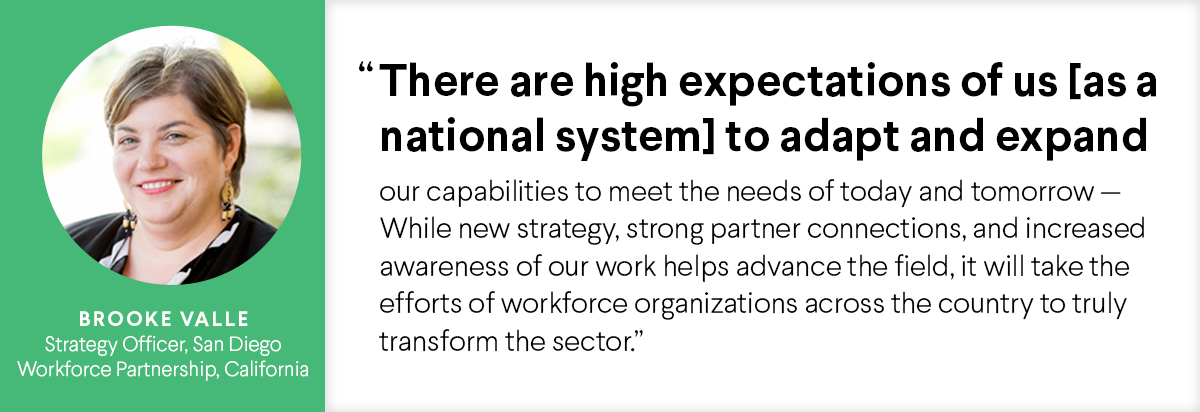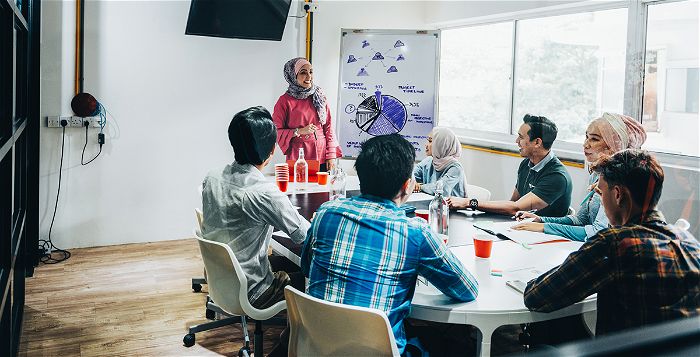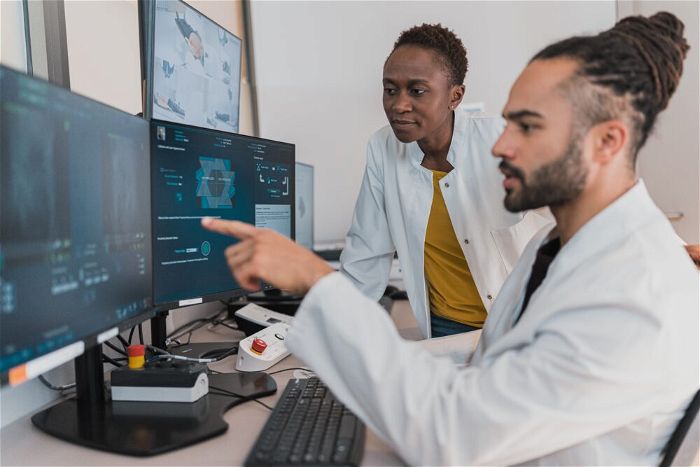Preparing Americans for the future of work is the defining domestic issue of our time.
Automation and machine learning technologies outperform people in jobs that once paid family-supporting wages. Meanwhile, young people and adults must acquire the knowledge and skills they will need to succeed in work environments that may not yet exist. And on top of that, employers and workers are increasingly using digital platforms to find and assess talent.
These realities are creating new compacts between workers and businesses, and they are prompting workforce boards and other workforce development organizations to adapt and expand the roles they play in preparing people for future learning and work opportunities.
In response to the emergence of a new age of work and learning, JFF and the National Association of Workforce Boards (NAWB) launched AWAKE (the Advanced Workforce Analytics and Knowledge Exchange). One of JFFLabs’ inaugural initiatives, AWAKE’s goal is to call attention to how workforce boards are evolving and to examine how technology and data have shaped those adaptations.
While K-12 and postsecondary educational institutions play critical roles in helping to prepare the next generation of workers for success, local workforce boards and American Job Centers (AJC) are finding innovative ways to respond to the new realities of today’s dynamic economy. In some cases, future-focused organizations within the workforce system have been able to stay ahead of the curve to meet the diverse needs of workers and emerging industries.
Workforce boards have been increasingly characterized by their unique identities, the niche labor market challenges they face, and the diverse and varying community organizations they partner with to advance regional workforce and economic development. They have also expanded their abilities to pursue a wider array of community-improvement goals and have established new and varied performance indicators to measure success.








